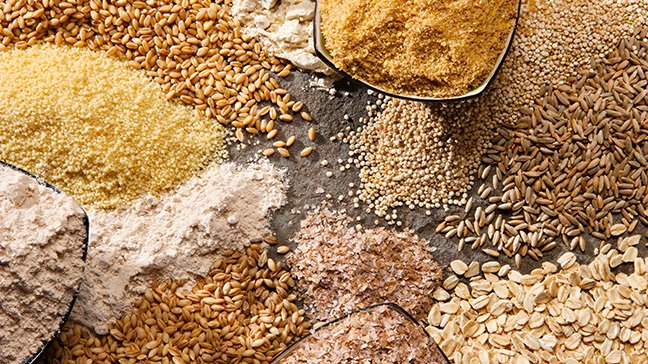- Diseases
- Acoustic Neuroma (16)
- Adrenal Gland Tumor (24)
- Anal Cancer (70)
- Anemia (2)
- Appendix Cancer (18)
- Bile Duct Cancer (26)
- Bladder Cancer (74)
- Brain Metastases (28)
- Brain Tumor (234)
- Breast Cancer (726)
- Breast Implant-Associated Anaplastic Large Cell Lymphoma (2)
- Cancer of Unknown Primary (4)
- Carcinoid Tumor (8)
- Cervical Cancer (164)
- Colon Cancer (168)
- Colorectal Cancer (118)
- Endocrine Tumor (4)
- Esophageal Cancer (44)
- Eye Cancer (36)
- Fallopian Tube Cancer (8)
- Germ Cell Tumor (4)
- Gestational Trophoblastic Disease (2)
- Head and Neck Cancer (14)
- Kidney Cancer (130)
- Leukemia (342)
- Liver Cancer (50)
- Lung Cancer (286)
- Lymphoma (278)
- Mesothelioma (14)
- Metastasis (30)
- Multiple Myeloma (100)
- Myelodysplastic Syndrome (60)
- Myeloproliferative Neoplasm (6)
- Neuroendocrine Tumors (16)
- Oral Cancer (102)
- Ovarian Cancer (178)
- Pancreatic Cancer (160)
- Parathyroid Disease (2)
- Penile Cancer (14)
- Pituitary Tumor (6)
- Prostate Cancer (150)
- Rectal Cancer (58)
- Renal Medullary Carcinoma (6)
- Salivary Gland Cancer (14)
- Sarcoma (238)
- Skin Cancer (300)
- Skull Base Tumors (56)
- Spinal Tumor (12)
- Stomach Cancer (66)
- Testicular Cancer (28)
- Throat Cancer (92)
- Thymoma (6)
- Thyroid Cancer (100)
- Tonsil Cancer (30)
- Uterine Cancer (86)
- Vaginal Cancer (18)
- Vulvar Cancer (22)
- Cancer Topic
- Adolescent and Young Adult Cancer Issues (22)
- Advance Care Planning (12)
- Biostatistics (2)
- Blood Donation (18)
- Bone Health (8)
- COVID-19 (360)
- Cancer Recurrence (120)
- Childhood Cancer Issues (120)
- Clinical Trials (628)
- Complementary Integrative Medicine (22)
- Cytogenetics (2)
- DNA Methylation (4)
- Diagnosis (238)
- Epigenetics (6)
- Fertility (62)
- Follow-up Guidelines (2)
- Health Disparities (14)
- Hereditary Cancer Syndromes (128)
- Immunology (18)
- Li-Fraumeni Syndrome (8)
- Mental Health (122)
- Molecular Diagnostics (8)
- Pain Management (62)
- Palliative Care (8)
- Pathology (10)
- Physical Therapy (18)
- Pregnancy (18)
- Prevention (936)
- Research (390)
- Second Opinion (78)
- Sexuality (16)
- Side Effects (616)
- Sleep Disorders (10)
- Stem Cell Transplantation Cellular Therapy (216)
- Support (408)
- Survivorship (328)
- Symptoms (182)
- Treatment (1788)
Processed meat and colorectal cancer: Is there a link?
2 minute read | Published October 26, 2015
Medically Reviewed | Last reviewed by an MD Anderson Cancer Center medical professional on October 26, 2015
Eating processed meats can raise the risk of colorectal cancer, according to a report released today by the World Health Organization (WHO).
The report labeled processed meats as “carcinogenic to humans.” Processed meats include hot dogs, bacon, ham, sausages and deli meats. WHO put these foods in the same category as cigarettes and asbestos. Red meats such as beef, pork and lamb, are considered “probably carcinogenic to humans,” according to the report. A carcinogen is something that can cause cancer, like tobacco use or sun exposure.
Why processed meats are harmful
“Processed meat and red meat have long been associated with colorectal cancer,” says Robert Bresalier, M.D., professor of gastroenterology, hepatology and nutrition.
According to WHO, eating 50 grams of processed meat daily increases the risk of colorectal cancer by 18%. About two slices of ham equals 50 grams.
Cutting processed meat from your diet is one way to reduce your risk of colorectal cancer. Cases of colorectal cancer are anticipated to rise in the coming years, especially in younger patients. By 2030, colon cancer cases are expected to increase by 90%. And rectal cancer cases are expected to increase by 124% in patients age 35 and younger.
Cancer-causing substances form when these meats are preserved. Eating these meats can damage a person’s DNA, increasing his or her cancer risk.
How to avoid processed meat and red meat
So, how do you know if you’re buying processed meat? Read the label and check for words like nitrate, nitrite, cured or salted. This means it’s a processed meat.
Even foods with labels that say they’re nitrate-free contain some amount of nitrates. So eat those in small quantities, too.
Our experts recommend a plant-based diet. That means two-thirds of your plate should be food that comes from plants. This includes fruits, vegetables and whole grains.
Instead of eating processed or red meat, try these healthier protein options:
- Plant proteins, like beans, legumes and soy
- Fresh chicken
- Fish
- Low-fat dairy foods
- Eggs
If you do choose to eat red meat, eat no more than 18 ounces of red meat per week. That’s about equal to the size of three decks of cards or four tennis balls.
“Eating a healthy, balanced diet means eating less meat and more fruits and vegetables,” Bresalier says.

Eating a healthy, balanced diet means eating less meat and more fruits and vegetables.
Robert Bresalier, M.D.
Physician





